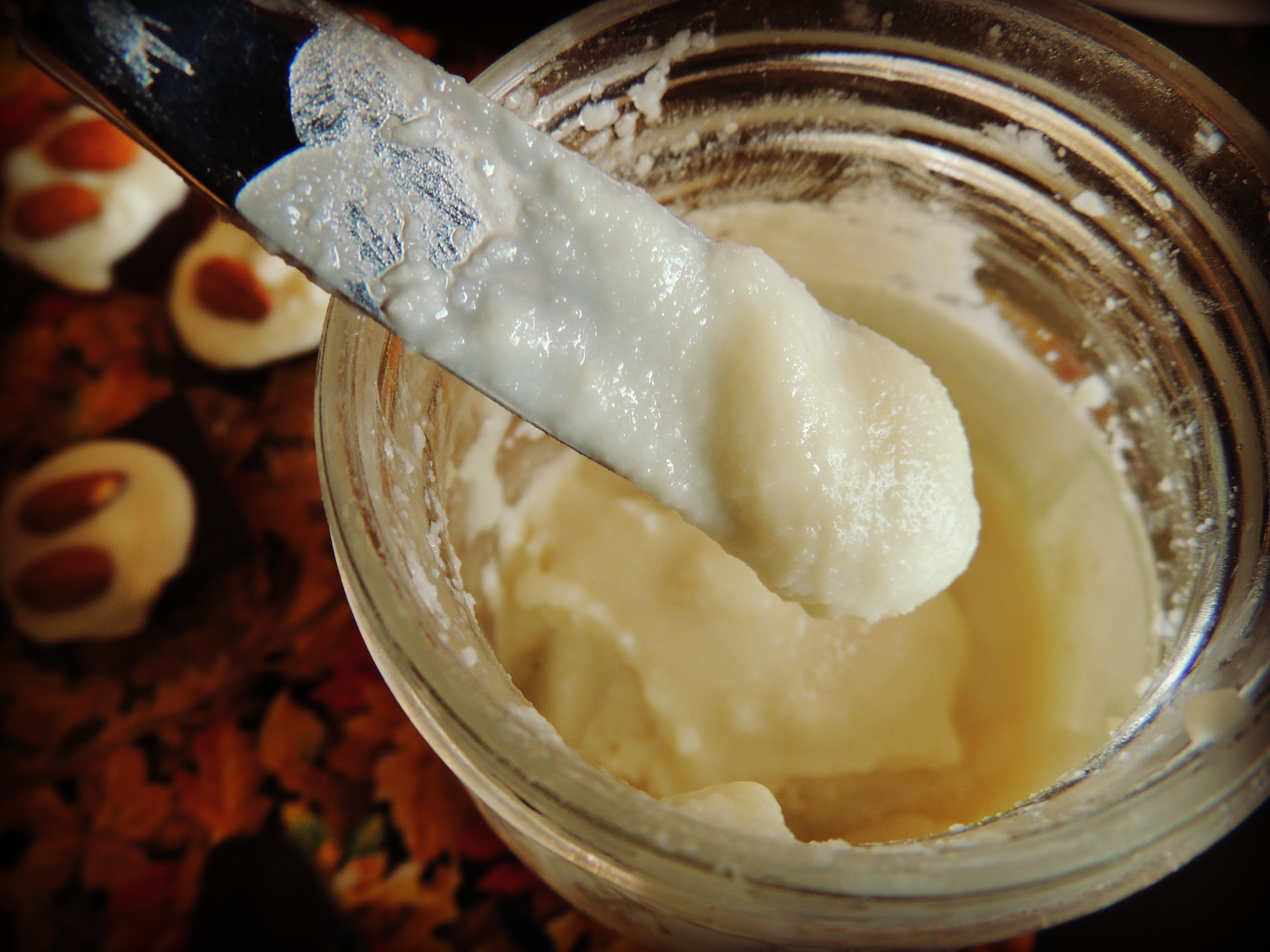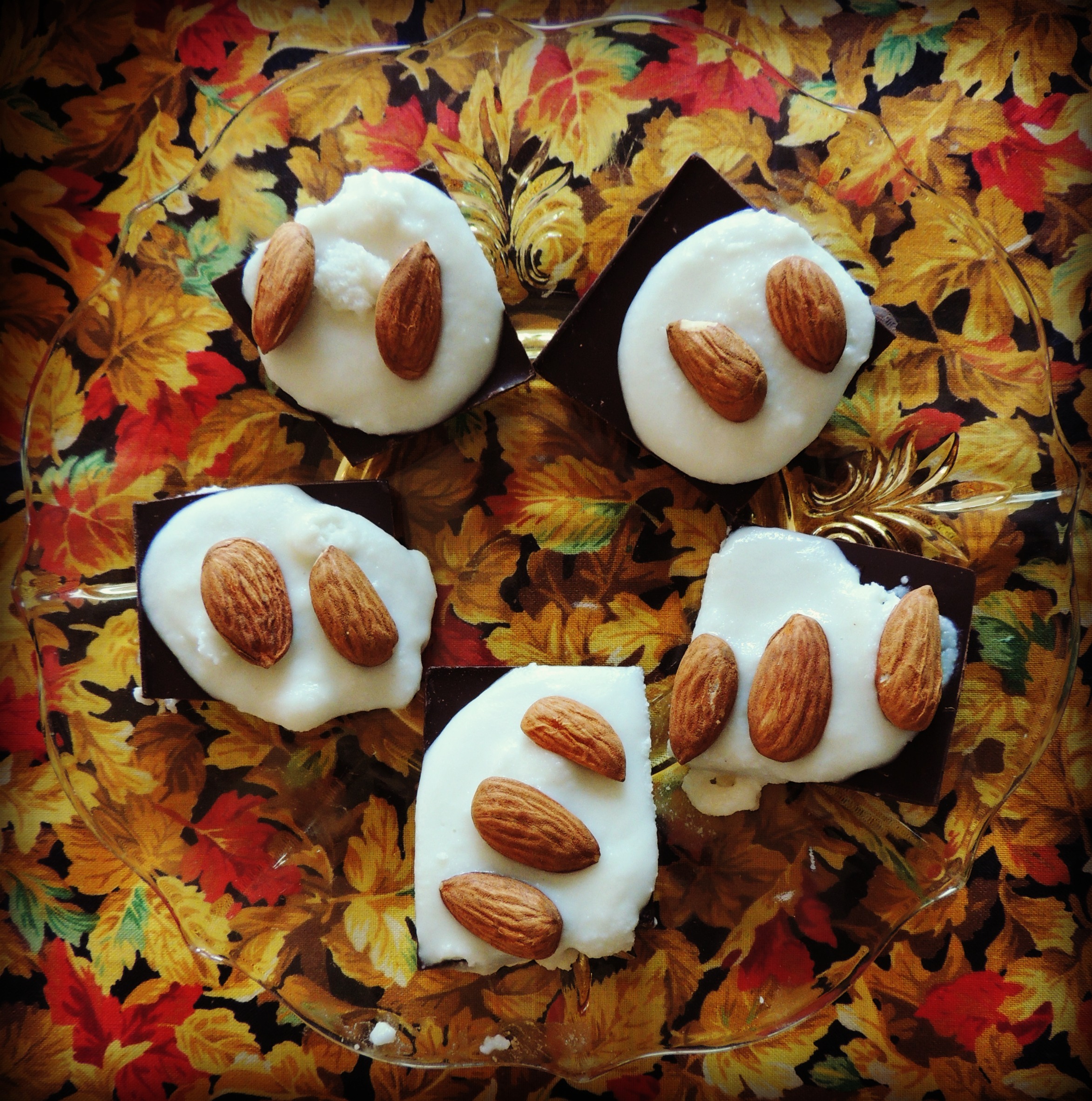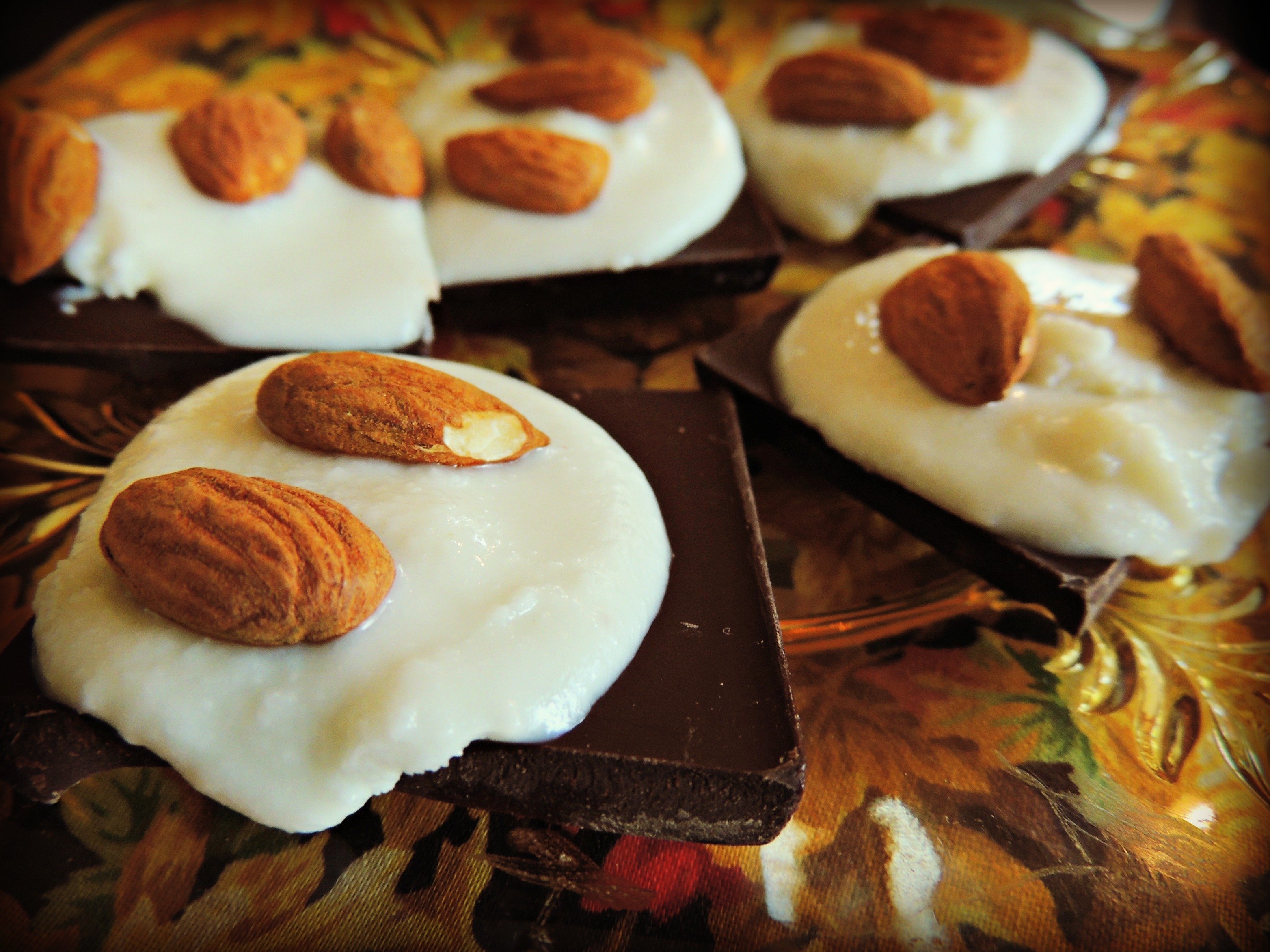Is chocolate good or bad for you? At a time of year when dark evenings beckon for a steaming cup of hot cocoa and kids run around with plastic pumpkins awaiting heaps of bite-sized candy bars, it is a topic of particular concern. Yet, chocolate seems to be one of those foods that flits contentiously about in the health community. One minute you will read a study boasting of its incredible antioxidant capabilities, and in the next it is woefully condemned for caffeine-like addictiveness and sugar content. Decide for yourself after considering some of the pros and cons of chocolate munchin' and indulge in this melt-in-your-mouth recipe for homemade coconut almond delights with dark chocolate or carob chips covered in a smooth organic coconut spread.
The Great Dark Chocolate Debate
In all the hoopla about chocolate, sometimes we forget to step back and consider what it actually is. Chocolate is made from the fermented, roasted and processed seeds of the cacao tree, although they are often misleadingly referred to as beans. Two main components are extracted from these fatty seeds: the inner solids or cacao nibs, and the creamy smooth cocoa butter made from the fats. Unprocessed cacao nibs are very bitter, however many people enjoy them sprinkled on salads or added into other recipes. Chocolate is produced when these nibs are mashed into a thick paste and then combined with varying amounts and types of sweeteners including sugar, cocoa butter and milk. High quality dark chocolates are particularly dense in the bitter cacao nibs, where as more popular milk chocolate products are thinned with sugars and milk. To expedite production while maintaining a desirable taste, cheap milk chocolate (and some commercial dark chocolate) preparations also contain added emulsifiers, soy lecithin, lactose and artificial flavorings which can be highly irritating. Most people in the health community agree that milk chocolates should definitely be avoided. When considering any chocolate, a dark, organic variety at higher than 70%-85% cocoa is really the only option on the table. Even still, there seems to be some concern about this delicious substance. Let's take a look at some of the pros and cons of dark chocolate:
Pros of Dark Chocolate
- Cocoa nibs are high in iron, magnesium, copper and manganese
- Bitter taste can be helpful in regulating appetite
- Contains soluble fibers which have shown helpful in regulating insulin and controlling weight
- High in flavanoids that act as powerful antioxidants to fight inflammation
- Cocoa butter is high in saturated fat in the form of stearic acid, which has neutral LDL effects
Cons of Dark Chocolate
- Increases sensitivity of endorphin receptors, falsely elevating mood
- Contains anti-nutrient oxalic and phytic acids which can leach calcium and block mineral absorption
- Contains phenylethylamine PEA, a caffeine-like stimulant
- Sweetened with refined sugar which is harmful in large amounts
- Commercial processing can result in cross-contamination with gluten and milk solids
The Weston A. Price Foundation's stance on the subject is:
"Chocolate is a tough one. I do not want to tell you that you should never eat chocolate, nor will I say that I have never eaten chocolate myself. But it should not be consumed habitually. It is somewhat addictive, enhances the sensitivity of endorphin receptors (thus can cause a let down afterwards), contains a caffeine-like substance and also needs to be sweetened..."
What do you think?
Carob Chips: A Chocolate Alternative
For those not wanting chocolate in their diet, carob is a valid alternative. Carob is a sweet substance that is akin in texture and appearance to chocolate. Available in a powder (similar to cocoa) and in bar or chip form, carob is made from the naturally sweet pulp from the pods of a Mediterranean evergreen. It lacks the stimulants and sugars that make chocolate a concern for some. Sound too good to be true? Well, it might be. if you are used to the particularly blissful taste of regular chocolate, you will find that carob is decidedly different. Yet with a rich and sultry flavor, some people actually find carob more enjoyable. Try it out with with this recipe for carob chips from Nourishing Traditions:
3/4 cup carob powder
1/4 cup Rapadura
1 cup organic coconut oil
1 tbsp vanilla extract
1 tsp chocolate extract
Add all ingredients to a glass container and set in simmering water until melted. Mix well together. Spread over a piece of buttered parchment paper and let cool in the refrigerator. When hardened, remove the parchment paper and break or cut into chips. Store in airtight container in the refrigerator.
Homemade Coconut Almond Delight Recipe

These exquisite little snacks are absolutely incredible tasting and always leave people licking their fingers in approval when I make them. If prepared using premium ingredients, they can actually be a relatively nutrient-rich indulgence. Be sure to use properly prepared sprouted almonds (dehydrated at home or from a trusted source), organic coconut spread and either homemade carob chips using high quality coconut oil or a cold-processed dark chocolate according to your dietary needs and preferences.
As a side note: if you haven't tried Radiant Life's new coconut spread yet (sometimes referred to as coconut cream), this is a must. Slightly nutty and luxuriously smooth, it is fabulous in snacks like this, over fruits, on celery sticks, with homemade crackers, mixed in with smoothies and sauces or savored right from the spoon.
To make your coconut almond delights, simply dab some coconut spread onto your homemade carob chips or some dark chocolate and garnish with almonds to your liking. Because coconut oil has such a high melting point, coconut spread may become firm in the cooler months. If this occurs, simply submerge the jar of coconut spread in warm water and stir with a knife to remix the oils prior to use. These treats are best enjoyed right away- but trust me, that shouldn't be a problem.
Looking for some other real food dessert ideas? Try a Fruit and Sprouted Nuts Crumble, All-Raw Cheesecake or Homemade Raw Ice Cream.
Resources
FAQs- Miscellaneous Food Questions from the Weston A. Price Foundation
Health Benefits of Dark Chocolate by Mark Sisson
All About Making Chocolate from the Field Museum


